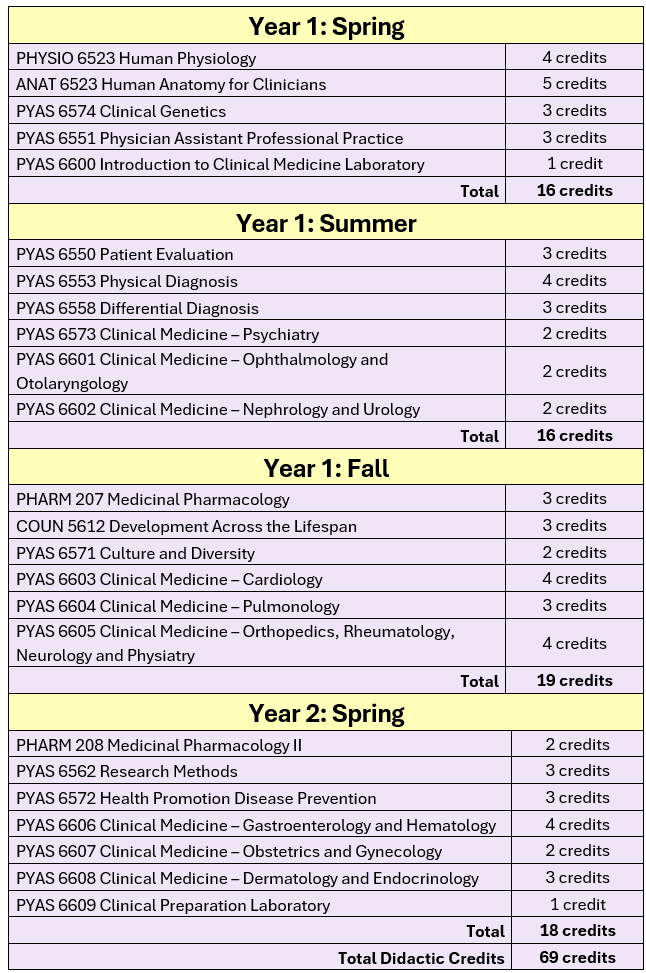Physician Assistant Curriculum
The 29-month curriculum of the LSUHSC-NO PA Program is divided into didactic and clinical phases. The following table illustrates the curriculum in its entirety.
NOTE: The schedule of Clinical Year Clerkships will vary per student per semester. This
is just a guideline.

Clinical Curriculum
The 12-month clinical rotation phase of the curriculum provides in-depth instruction in the evaluation and management of disease and injury alongside medical students, residents, allied health practitioners and faculty in emergency medicine, internal medicine (inpatient and outpatient), family medicine, obstetrics and gynecology, pediatrics, psychiatry and behavioral medicine, and surgery.
The training experiences are used to prepare PA students to deliver health care services to diverse patient populations of all ages with a range of acute and chronic medical and surgical conditions.
Students will have the opportunity to train in state-of-the-art urban medical centers, rural hospitals and clinics and in private offices of a variety of health care providers.

